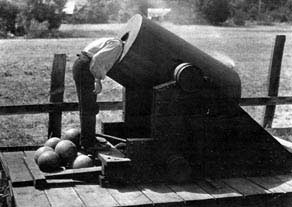The Justice Department is investigating whether the director of aCollusion between the Bush administration and oil interests? Nah!
multibillion-dollar oil-trading program at the Interior
Department has been paid as a consultant for oil companies hoping for contracts.
____
Conservatism Never Fails: A (Pretty) Short History of Wingnutism
____
Saddam Hussein has been hanged. President Bush observed it "is an important milestone on Iraq's course to becoming a democracy..." How many is that now?
"First it was weapons of mass destruction. Then when there were none, it was that we had to find Saddam. We did that, but then it was that we had to put him on trial," said Spc. Thomas Sheck, 25, who is on his second tour in Iraq. "So now, what will be the next story they tell us to keep us over here?"(h/t to Atrios)
____
The LAT asks "How would four of the greatest war leaders in history have handled Iraq?" Three historians and an anthropologist weigh in for Ghengis Khan, Julius Caesar, Abraham Lincoln and George Washington.
Dubya, you're no George W.:
Until the winter of 1777-78 at Valley Forge, Washington thought of the war against Britain as a contest between two armies. When the British army presented itself for battle, as it did on Long Island in the summer of 1776, Washington felt honor-bound to fight — a decision that proved calamitous on that occasion and nearly lost the war at the very start. That's because the British had a force of 32,000 men against his 12,000. If Washington had not changed his thinking, the American Revolution almost surely would have failed because the Continental Army was no match for the British leviathan.See, the British defeatocrats would have won if they'd simply taken Bush's advice: "We'll succeed unless we quit."
But at Valley Forge, Washington began to grasp an elemental idea: Namely, he did not have to win the war. Time and space were on his side. And no matter how many battles the British army won, it could not sustain control over the countryside unless it was enlarged tenfold, at a cost that British voters would never support. Eventually the British would recognize that they faced an impossibly open-ended mission and would decide to abandon their North American empire. Which is exactly what happened.
(h/t to Mahablog)
